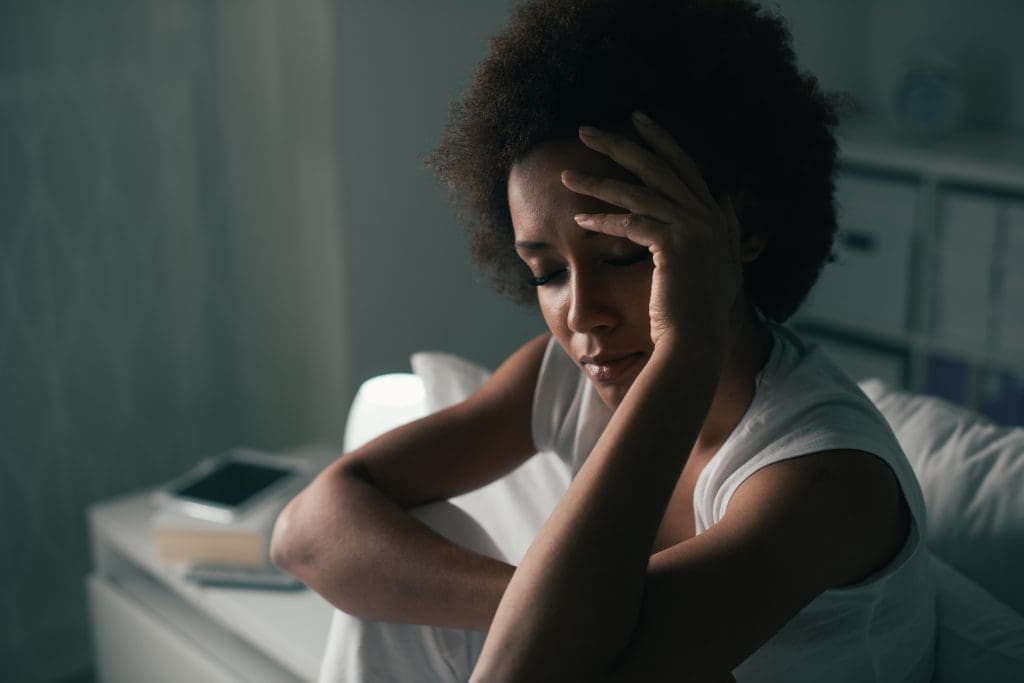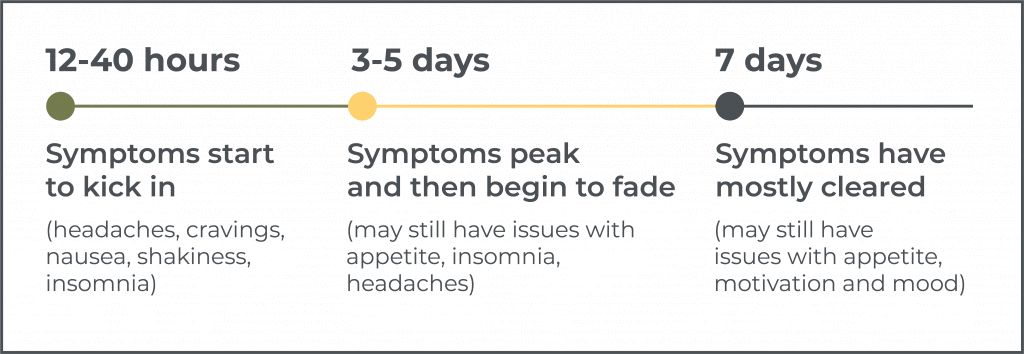
Codeine withdrawal symptoms – like withdrawal symptoms from most drugs – can be a pretty nasty experience.
Withdrawal symptoms are the effects felt by a substance-dependent individual after a prolonged period without the substance in their system. It’s their body’s response to not getting what it needs to function as a result of the dependency built through frequent use of an addictive drug.
Codeine is an opioid painkiller used by an estimated 33 million people every year that can be bought either over the counter or prescribed by your GP. Like many other prescription opioids – codeine is highly addictive. And like many highly addictive drugs, withdrawal symptoms start to kick in when you’re not getting enough of it.
Even though codeine is prescribed by doctors and can be bought at your local pharmacy, people all over the world have built a serious dependency on the drug and the withdrawals can be a pretty rough ride.
Codeine withdrawal symptoms vary from person to person depending on the amount of time they’ve been using codeine, how long they’ve been without it in their system and a host of other variables.
Some common signs and symptoms of codeine withdrawal include:
- Aches and pains
- Fever and chills
- Strong cravings for codeine
- Insomnia
- Stomach cramps and diarrhoea
- Poor appetite
- Tremors
- Anxiety and depression
- Lethargy
- Muscle spasms and cramps
- Headache and clouded thinking
Symptoms like these can make detoxing from codeine difficult and can make people avoid recovery to avoid the withdrawal symptoms. But the fact is, the longer you feed the addiction – the more difficult it will be to detox off the drug.
Codeine Withdrawal Timeline
The timeline for withdrawal from codeine can vary depending on a number of factors, however, a general outline of the timeline for codeine withdrawal symptoms follows:

12-40 hours without codeine
Codeine does not remain in the system very long. Individuals who have used large amounts of codeine on a regular basis may begin experiencing withdrawal symptoms pretty quickly when they’ve not got it in their system. The average time that withdrawal symptoms appear is approximately 12 hours after discontinuation of codeine, but some individuals may only begin to experience symptoms (cravings, headaches, nausea, shakiness etc.) within 24-40 hours.
3-5 days without codeine
Symptoms typically peak within 3-5 days after without codeine in the system. After that, the levels of distress will usually begin to decline, although issues with general malaise, shakiness, headaches, cravings, insomnia and appetite may still continue.
7 days without codeine
Withdrawal symptoms will have generally disappeared within a week of discontinuation. Some individuals might still experience issues with appetite, motivation, mood swings, cravings and more after the 7 days.
Months later
In some cases, symptoms may continue for months or even years following discontinuation. Some sources still refer to these prolonged issues as a post-acute withdrawal syndrome; however, research has never validated these prolonged issues as a formal withdrawal syndrome, and they most likely represent other factors potentially related to other mental health issues.
This timeline gives us a good idea of how withdrawal can happen but everyone experiences withdrawal and addiction differently.
Sadly, withdrawal symptoms often motivate users to take more of the drug, reinforcing use, helping them develop a higher tolerance, and contributing to more severe withdrawal symptoms down the line.
Codeine addiction – like any other addiction – is a vicious cycle and if not dealt with properly, it can have serious impacts on your relationships, work and health.
Treatment for codeine dependency/addiction
The National Office for Statistics recorded 169 and 167 codeine related deaths in 2018 and 2019 respectively. 2018 saw the highest number of codeine deaths since records began, highlighting a growing problem in this country.
Codeine addiction is a serious problem and requires a medically-supervised clinical detox, around the clock therapeutic support and thorough aftercare treatment.
Residential rehab is a popular choice for overcoming codeine addiction. It offers a safe environment away from temptation of distractions, allowing you to not only detox from codeine but understand the underlying behaviours that may have caused your addiction in the first place.
Codeine addiction recovery at Delamere
Our purpose-built rehabilitation facility in the heart of the Cheshire countryside has everything you need to move beyond codeine addiction.
With dedicated doctors and nurses on hand to help you safely detox, one-to-one and group therapy to address any underlying issues – you’ll leave with the tools needed to live a life free from addiction.
We believe in a more holistic approach to recovery and facilitate intensive transformational programmes. You’ll take part in art and equine therapy, fire ceremonies, yoga, meditation and more to ensure you don’t just get over your addiction, but you grow beyond it.
Learn more about detoxing at Delamere and our approach to recovery, or contact our team to see how we can help you make a change today.







